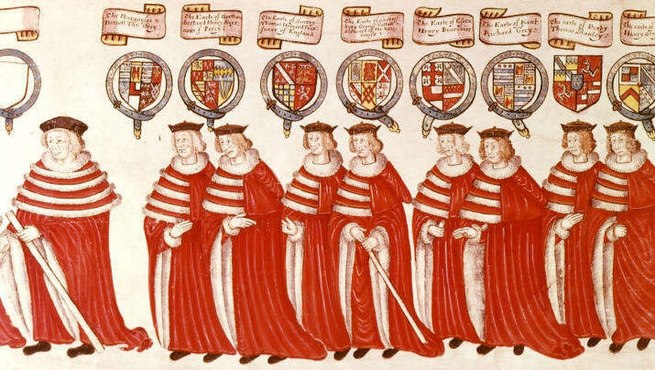
Main Difference
The main difference between Earl and Duke is that the Earl is a English title of nobility and Duke is a noble or royal title in some European countries and their colonies.
-
Earl
An earl () is a member of the nobility. The title is Anglo-Saxon in origin, akin to the Scandinavian form jarl, and meant “chieftain”, particularly a chieftain set to rule a territory in a king’s stead. In Scandinavia, it became obsolete in the Middle Ages and was replaced by duke (hertig/hertug/hertog). In later medieval Britain, it became the equivalent of the continental count (in England in the earlier period, it was more akin to a duke; in Scotland it assimilated the concept of mormaer). However, earlier in Scandinavia, jarl could also mean a sovereign prince. For example, the rulers of several of the petty kingdoms of Norway had the title of jarl and in many cases they had no less power than their neighbours who had the title of king. Alternative names for the rank equivalent to “earl/count” in the nobility structure are used in other countries, such as the hakushaku of the post-restoration Japanese Imperial era.
In modern Britain, an earl is a member of the peerage, ranking below a marquess and above a viscount. A feminine form of earl never developed; instead, countess is used.
-
Duke
A duke (male) (British English: or American English: ) or duchess (female) can either be a monarch ruling over a duchy or a member of the nobility, historically of highest rank below the monarch. The title comes from French duc, itself from the Latin dux, ‘leader’, a term used in republican Rome to refer to a military commander without an official rank (particularly one of Germanic or Celtic origin), and later coming to mean the leading military commander of a province.
The title dux survived in the Eastern Roman Empire where it was used in several contexts signifying a rank equivalent to a captain or general. Later on, in the 11th century, the title Megas Doux was introduced for the post of commander-in-chief of the entire navy.
During the Middle Ages the title (as Herzog) signified first among the Germanic monarchies. Dukes were the rulers of the provinces and the superiors of the counts in the cities and later, in the feudal monarchies, the highest-ranking peers of the king. A duke may or may not be, ipso facto, a member of the nation’s peerage: in the United Kingdom and Spain all dukes are/were also peers of the realm, in France some were and some were not, while the term is not applicable to dukedoms of other nations, even where an institution similar to the peerage (e.g., Grandeeship, Imperial Diet, Hungarian House of Magnates) existed.
During the 19th century many of the smaller German and Italian states were ruled by Dukes or Grand Dukes. But at present, with the exception of the Grand Duchy of Luxembourg, there are no dukes ruling as monarchs. Duke remains the highest hereditary title (aside from titles borne by the reigning or formerly reigning dynasty) in Portugal (though now a republic), Spain, and the United Kingdom. In Sweden, members of the Royal Family are given a personal dukedom at birth. The Pope, as a temporal sovereign, has also, though rarely, granted the title of Duke or Duchess to persons for services to the Holy See. In some realms the relative status of “duke” and “prince”, as titles borne by the nobility rather than by members of reigning dynasties, varied—e.g., in Italy and the Netherlands.
A woman who holds in her own right the title to such duchy or dukedom, or is the wife of a duke, is normally styled duchess. Queen Elizabeth II, however, is known by tradition as Duke of Normandy in the Channel Islands and Duke of Lancaster in Lancashire.
-
Earl (noun)
Any of various nymphalid butterflies of the genus ver=190708. Other butterflies in this genus are called counts and viscounts.
-
Duke (noun)
The male ruler of a duchy (female equivalent: duchess).
-
Duke (noun)
The sovereign of a small state.
-
Duke (noun)
A high title of nobility; the male holder of a dukedom.
-
Duke (noun)
A grand duke.
-
Duke (noun)
A fist.
“Put up your dukes!”
-
Duke (verb)
To hit or beat with the fists.
-
Duke (verb)
To give cash to; to give a tip to.
“I duked him twenty dollars.”
